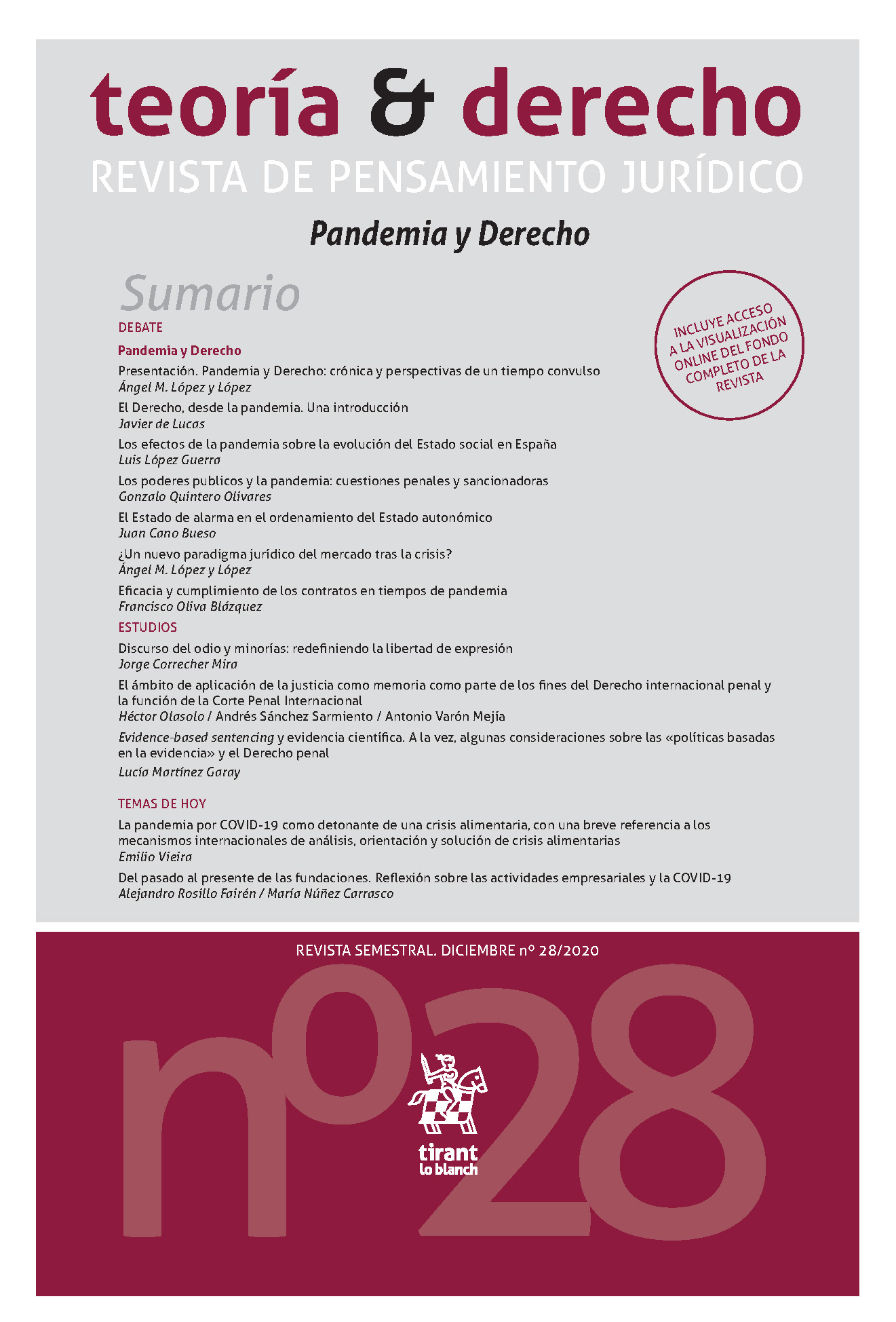Evidence-based sentencing y evidencia científica. A la vez, algunas consideraciones sobre las «políticas basadas en la evidencia» y el derecho penal
DOI:
https://doi.org/10.36151/td.2020.018Palabras clave:
Evidence-based sentencing, políticas basadas en la evidencia, valoración de riesgos de reincidencia, evidencia científica, Derecho penal, prevención especialResumen
El evidence-based sentencing (EBS) es una denominación reciente para una pretensión que tiene hondas raíces en el Derecho penal: aplicar las penas más adecuadas al nivel de riesgo de reincidencia que presenta cada condenado para intentar reducir ese riesgo al mínimo posible. Esta versión moderna de la prevención especial se inserta en el enfoque más amplio de las «políticas públicas basadas en la evidencia». Considera que la mejor evidencia existente para el control de la reincidencia son las modernas herramientas de valoración estructurada del riesgo, y aduce ser capaz de lograr varios objetivos a la vez: reducir la reincidencia, mantener un elevado nivel de seguridad ciudadana, hacer un uso más eficiente de los recursos públicos y alejar la política criminal de luchas ideológicas al fundamentarla en evidencia científica objetiva. De los muchos problemas que suscita el EBS, este trabajo analiza solo uno: la calidad de la evidencia científica en que se basa, y los datos disponibles sobre en qué medida alcanza (o no) los objetivos que pretende.
Descargas




















